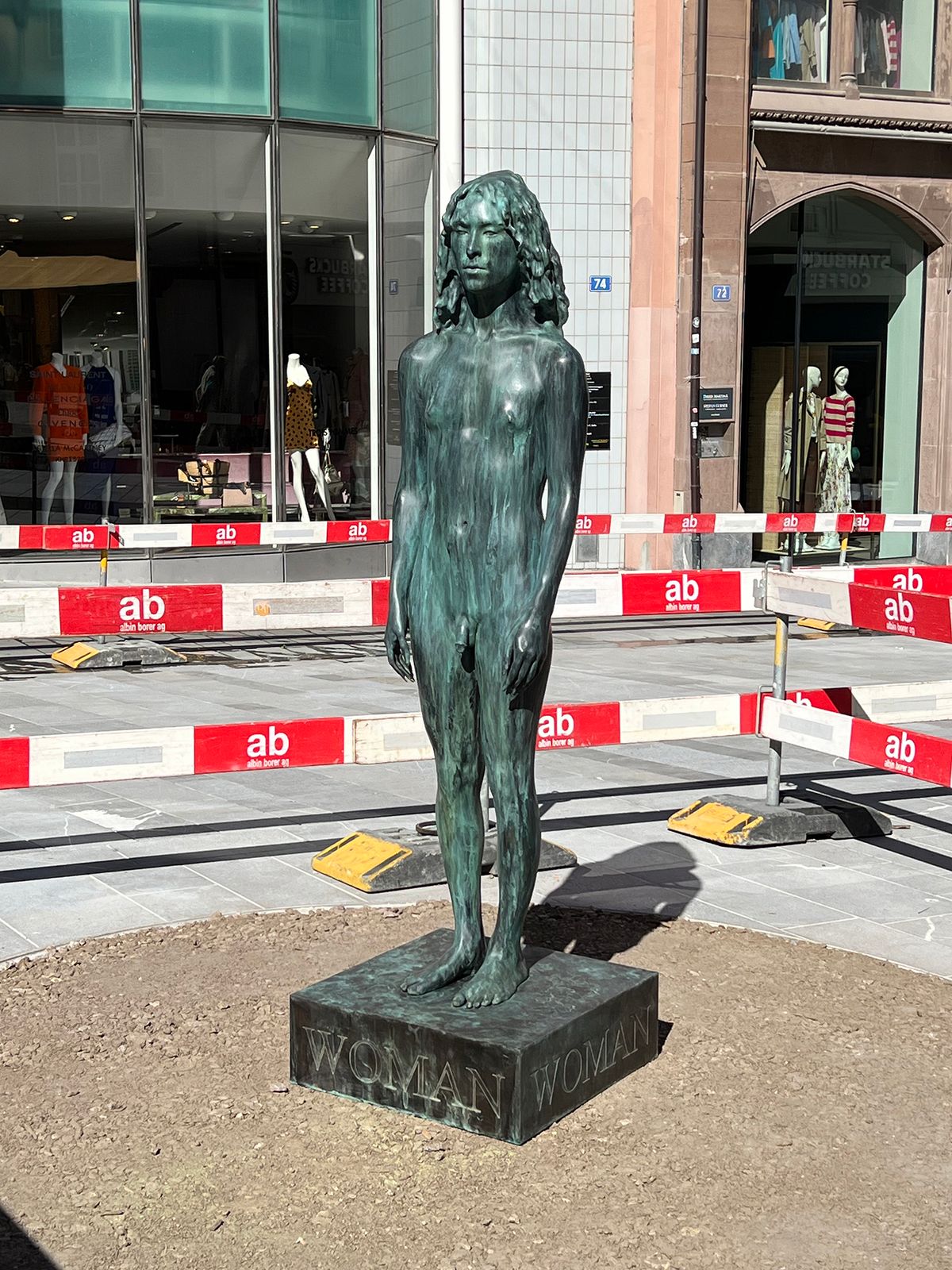Unveiled as part of this year’s Parcours section at Art Basel is a work being described as the first ever public sculpture depicting a nude, openly trans woman. Designed by the American trans artist Puppies Puppies (aka Jade Guanaro Kuriki-Olivo), the work is a life-sized bronze statue in the tradition of classical sculpture, based on a 3D scan of the artist’s body. Written on the work’s plinth is the word: “woman”.
“Trans women are erased, murdered, arrested and exiled every day,” Kuriki-Olivo says. “When you look at trans history you see so many blank spots which can only be recovered through storytelling. In this context, my continued existence is revolutionary, and I need to be hyper-present in the world. It is important for me to have this sculpture in the public sphere.”
Kuriki-Olivo, who was born in Dallas and is based in New York, says that, for this work, she considered Europe’s long history of depicting the nude body through classical sculpture, and also of silencing gender non-conforming views. In the Second World War, she says, a number of medical documents vital for the advancement of health services for trans people were burned by the Nazis.
Other public sculptures that depict trans people exist and have for decades, Kuriki-Olivo acknowledges. These include a bust of queer activist Marsha P. Johnson, installed last year near the Stonewall Inn in New York, to commemorate her pivotal role in the famous riots that took place there in 1969.
Having a permanent, solid work that could live beyond her is “new and intriguing”, Kuriki-Olivo says, as she is perhaps best known for her performance work. Her 2017 piece Liberty (Liberté), which references drag culture and the Statue of Liberty, is still the only performance work in the collection of the Whitney Museum of American Art. Much of her object-based work is also rooted in ephemerality and decomposition. In 2021 she exhibited a calf’s brain studded with the hormones and prescription medications that she is taking. The work, placed outdoors, disintegrated over the course of the show.
Kuriki-Olivo’s work comes at a time when trans rights in the US and elsewhere are increasingly under threat, with a number of recent laws excluding trans people from various aspects of public life, including bathrooms and sports teams, as well as preventing them from having full bodily autonomy. She hopes the presence of her sculpture will help to create “some sort of empathy and understanding of what some trans people’s lives are like”.


